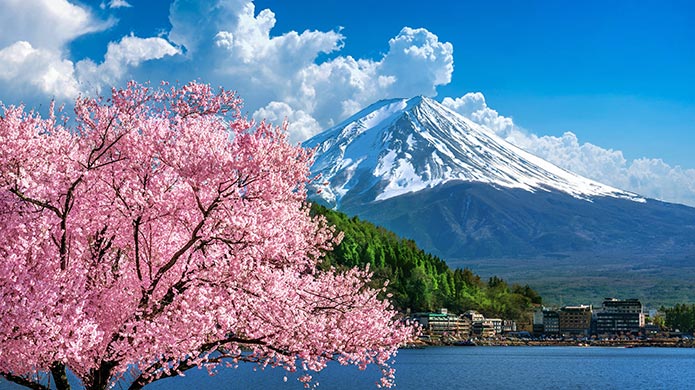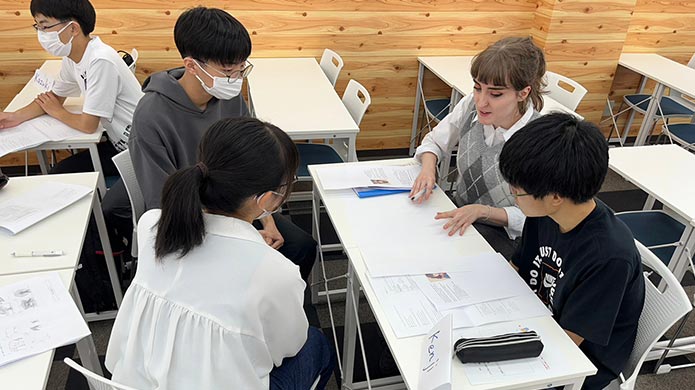Japan
Japan is a country in Asia consisting of five main islands: Okinawa, Honshu, Hokkaido, Kyushu and Shikoku.
Its closest neighbors are Russia, China, Korea and Taiwan.
A developed country, Japan is home to megacities like Tokyo and Osaka, but also has areas of natural beauty such as Mt. Fuji National Park and Rebun Island.
Japan’s population is estimated at around 126 million people, 80% of which reside on Honshu Island. Although immigrants make up a very small percentage of Japan’s population, in recent years, immigration to the country has been increasing, with many heading there for jobs in technology and teaching.
The main language spoken in Japan is Japanese. Recently, English language proficiency has begun to fall in Japan and the government are interested in boosting the access to English education for its citizens.
Teaching in Japan is a chance of a lifetime to explore one of the richest cultures and enjoy some of the most beautiful scenery anywhere in the world.
Japan has an ancient culture full of beautiful traditions and art, amazing food, and advanced technologies, offering teachers a unique opportunity to immerse themselves in a one-of-a-kind country.
History
Japan is governed by a Prime Minister elected by the public, and is currently a stable democracy, but it also still has an Emperor who fulfils a ceremonial role. Similar to many monarchical systems, the Emperor is a title passed throughout the family.
In the modern day, Japan is a very technologically advanced country that has become more diverse as more people have immigrated there.
Twenty-first century Japan is a country of modern innovations and comforts. However, the countryside still offers visitors a glimpse into the “old Japan”.
Climate
The northern areas of the country experience cold winters and warm summers, experiencing heavy snowfall at the colder times of year.
Meanwhile, the south has much milder winters and warmer summers.
The Nanpo and Ryukyu Islands have a subtropical climate with warm winters, very hot summers, and a lot of precipitation in the rainy season.
English Proficiency
As Japan’s English proficiency appears to be falling, it is important to get more passionate, motivated and skilled English teachers into the country.
Learning English can provide many opportunities for young people in Japan, including allowing them to enter more prestigious universities and to study abroad.
For adults and young people alike, it can open the doors for them to attain higher level jobs in various sectors that require international communication.
As the culture is competitive, many Japanese parents are keen to let their children learn English as it can give them a real boost in school and at work.
In 2020, the Japanese government has planned to make learning English in school mandatory for pupils in the third grade and above.
In addition to classes taught in school, Japan also has English academies running classes for children (and sometimes adults) after school/work.
Businesses also often hire English teachers to increase their staff’s proficiency in English. There is a particular shortage of English language teachers in rural areas
Work Culture
Japanese people work longer hours, and commute greater distances for work, than many other developed countries.
They have a strong work ethic and businesses and organizations’ expectations of their workers’ commitment levels are quite high.
This same expectation will be experienced by foreign teachers so it is something to prepare for and set the right expectation.
Culture
Etiquette is extremely important in Japan and can be something that visitors struggle to get to grips with at first. There are different rules of etiquette in different situations, largely influenced by the country’s traditions and philosophy.
Japanese society can feel strict and regulated; there are lots of unspoken social rules to be aware of and many people strive to achieve their best at work and school.
However, with increasing exposure to other cultures through the emergence of the internet and increased immigration, peoples’ minds are opening to new attitudes and ways of life and Japan should not be viewed as a close-minded society.
Japan has long been an innovator in the field of video gaming and was among the first to recognise and capitalise on the potential of this new market. The home of brands such as Nintendo and Sony, video gaming is still a popular hobby in the country.
Sports are also a very popular pastime in Japan, with sumo often considered the national sport. Japanese martial arts, such as judo and karate, are also widely learned and enjoyed.
Additionally, Japanese teams also compete on the world stage in football (soccer), rugby, volleyball and baseball, and there are many stadiums around the country where spectators can watch different sporting events.
Japan also has a long history of producing works of creative arts. Traditional Japanese paintings and architecture have a very recognisably unique style, as seen particularly in Kyoto where a lot of traditional wooden houses (machiya) still survive.
In the modern day, Japan is still a hub for the arts, particularly in the fields of literature and fashion. Japanese anime and manga are also both hugely popular in Japan and internationally.
In Japan, there are strict dress codes for business situations
and many teachers will be required to wear formal attire, covering tattoos.
Some businesses have adopted “light biz”, a code of dress for their employees implemented in the summer to be more comfortable in which ties and long-sleeved shirts are unnecessary.
In everyday life, you can see a plethora of different styles of fashion in Japan, especially in the larger cities where subcultures are popular among young people.
However, most people dress more modestly than people in the west, with their shoulders covered.
Religion
The Shinto religion centres around the belief in gods or spirits- or kami- that inhabit all things.
Throughout the year, there are many seasonal and age-related Shinto festivals and rituals carried out in the country.
Buddhism has also been a key religion in Japan since the 6th century.
Although only a small percentage of Japanese citizens identify as religious, Shinto and Buddhist practices are still participated in by many, reflecting the common view in Japanese society that the practices of different religions needn’t be exclusive.
Due to a rising level of immigration, Japan is also home to a smaller percentage of Muslims, Sikhs, Hindus and other religious groups.
Expert guidance and support
We’ll send you more info, explain the program and answer all your questions.

